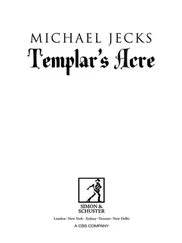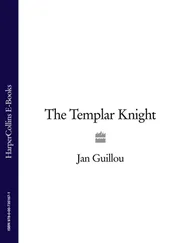C. Palov - Templar's Code
Здесь есть возможность читать онлайн «C. Palov - Templar's Code» весь текст электронной книги совершенно бесплатно (целиком полную версию без сокращений). В некоторых случаях можно слушать аудио, скачать через торрент в формате fb2 и присутствует краткое содержание. Год выпуска: 0101, Издательство: Penguin Group USA, Inc., Жанр: Старинная литература, на английском языке. Описание произведения, (предисловие) а так же отзывы посетителей доступны на портале библиотеки ЛибКат.
- Название:Templar's Code
- Автор:
- Издательство:Penguin Group USA, Inc.
- Жанр:
- Год:0101
- ISBN:нет данных
- Рейтинг книги:5 / 5. Голосов: 1
-
Избранное:Добавить в избранное
- Отзывы:
-
Ваша оценка:
- 100
- 1
- 2
- 3
- 4
- 5
Templar's Code: краткое содержание, описание и аннотация
Предлагаем к чтению аннотацию, описание, краткое содержание или предисловие (зависит от того, что написал сам автор книги «Templar's Code»). Если вы не нашли необходимую информацию о книге — напишите в комментариях, мы постараемся отыскать её.
During the Middle Ages a rumor was born about a mysterious and sacred Ancient Egyptian text. Known as the Emerald Tablet, it was said to contain the secret of creation.
But the greatest secret of all is who wrote it...
Templar's Code — читать онлайн бесплатно полную книгу (весь текст) целиком
Ниже представлен текст книги, разбитый по страницам. Система сохранения места последней прочитанной страницы, позволяет с удобством читать онлайн бесплатно книгу «Templar's Code», без необходимости каждый раз заново искать на чём Вы остановились. Поставьте закладку, и сможете в любой момент перейти на страницу, на которой закончили чтение.
Интервал:
Закладка:
Of course, as anyone familiar with history knows, those same fierce winds had blown across central Europe five hundred years earlier when Thessaloniki—named for Alexander the Great’s sister—had been conquered by the Turkish sultan, Murad II. In the aftermath of that war, the name of the city was changed to Salonica. When the winds died down, a new era of prosperity and religious tolerance were ushered in as evidenced shortly thereafter when the sultan welcomed to Salonica thousands of Jews who’d been banished from Spain by the radical Catholic monarchs Isabella and Ferdinand. Learned, skilled, and entrepreneurial, the transplanted Sephardi, as they were known, adjusted quickly to life in the Ottoman city.
While the Sephardi businessmen helped Salonica to prosper, it was the Sephardi holy men who made an indelible mark on the “new Jerusalem.” Mystical rabbis, known as Kabbalists, they studied the esoteric secrets embedded within the Hebrew alphabet, convinced that those twenty-two letters, bequeathed to Moses by God, were at the very heart of creation. The mystical Kabbalists of Salonica were renowned the world over and regarded with high esteem by the mystics of the Christian and Muslim faiths.
Until the year 1666, when a Jewish Kabbalist named Sabbatai Zevi proclaimed himself the Messiah.
In the religious frenzy that ensued, thousands of Jews sold their belongings and hitched themselves to the Zevi wagon, certain the end of the world, as prophesied in the book of Ezekiel, was near at hand. The sultan did not take kindly to any of this and had Zevi arrested and sentenced to death. However, being a fair and just ruler, the sultan exercised leniency at the last minute and gave Zevi the opportunity to recant his sins and convert to Islam, thereby saving himself from a sharp scimitar. Not only did Zevi recant, but he also urged his thousands of followers to follow his lead and convert to Islam. Which they willingly did. As only Kabbalists could, these new adherents to the Muslim faith saw their conversion as a redemptive act of gathering up the divine sparks of the universe so they could live a more holy life in the material world. They called themselves Ma’min, the Faithful.
At the turn of the twentieth century there were ten thousand Ma’min in Salonica. A strong, vibrant community that had fused together Sephardic culture and Kabbalistic beliefs, and had wedded those to the Muslim religion. They read the Koran and attended mosque but still contemplated the secret teachings of Moses. As Muslim followers of a Jewish messiah, the Ma’min were the perfect bridge between the two People of the Book. This fluidity of faith extended into their personal lives, the Ma’min intermingling with and intermarrying both Muslims and Jews.
Which is how, in those tumultuous last years of the fin de siècle, a wealthy Ma’min family named de Léon hired a Jewish wet nurse who hailed from the humble Benaroya family. Their respective sons, only three days apart in age, grew up side by side. Milk brothers. So inseparable that one would have been forgiven for thinking they were blood brothers.
No sooner did they reach manhood than the fierce winds blew yet again.
In 1922, in the aftermath of the first Balkan war, Salonica became a Greek domain. Overnight, five hundred years of Ottoman rule ended, the mosques shut down, and the distinctive minarets that pierced the skyline were destroyed. The physical destruction was paltry compared to the human toll—the Greek government heartlessly decreeing that all Muslims be deported to Turkey. Only those with extraordinary circumstances would be exempt. Osman de Léon was one of a handful of Ma’min granted permission to remain in the newly renamed Thessaloniki, having wisely wed a Christian woman from an influential Greek family. And so the two milk brothers, Osman and Moshe, were able to continue the friendship that began in infancy.
The bond strengthened over the next two decades. Although on that spring night in 1943, it was threatened yet again. This time by a fateful knock at the door.
“May it be good news,” Moshe Benaroya murmured, as Cybele scurried to answer the door.
It wasn’t. Not unless one considered it “good” to have an armed SS officer pay his respects.
Rudely refusing the offered cup of coffee, the SS officer at the front door ordered Moshe to leave the house. Since Osman and his family were non-Jews, the SS officer had no interest in them. If he wondered why a wealthy tobacco merchant was hosting an impoverished Jew, he made no mention of it.
“You cannot take him!” Osman had protested, clearly upset. “Moshe Benaroya is my brother!”
The SS officer mirthlessly smiled. “Then you will want to accompany him to the train station.”
A stunned silence ensued. The adults in the room were well aware that it wasn’t a suggestion; it was an order.
Although he was only five years of age, Mercurius intuited that something momentous had just occurred. Running across the drawing room, he threw himself at his father.
Bending at the waist, Osman scooped him up in his arms and held him close. “You must always remember, little one, that you were named for the Bringer of the Light.”
Moshe Benaroya, standing beside them, placed a comforting hand upon his tousled head. “Do not fear the Light, Merkür. For it will lead you to your life’s purpose.”
Osman de Léon never returned from the station. And neither man ever returned from Auschwitz.
As the throng of “passengers” bound for Poland were marched through Plateia Eleftherias—Freedom Square—the citizens of Thessaloniki stood silent. Yes, some cried. And a few helplessly shook their heads as the bedraggled stream of humanity passed before them. But no one raised a gun, a finger, or even a voice in protest.
Mercurius and his mother stood silent with the other bystanders. Terrified, the entire time he’d clutched her leg. Overhead, cotton clouds turned bloodred, saturated with the rays of the setting sun. Day was dying, and he feared a new day would never dawn.
It did. But not before three thousand Jews and one Ma’min Muslim had been tightly packed onto the waiting train, leaving behind their property, their history, and their cherished memories of the “new Jerusalem.”
Over the course of that heartbreaking spring, nearly forty-five thousand Jews from Thessaloniki were transported to Auschwitz. Most, when they first arrived, were handed a bar of soap and sent directly to the “showers.”
Lost in the horrific memory from that long-ago spring night, Mercurius raised the small cup of Turkish coffee to his lips and took a measured sip.
On that fateful day in 1943 when the unexpected knock sounded at the front door, he’d been taught an indelible lesson . . . that evil is birthed in silence.

CHAPTER 13
“I don’t care what the homicide detective told us,” Edie said as she walked into the living room of her Adams Morgan row house. “I’m not buying that it was a crime of passion. It was . . . I don’t know, too much like an execution. An aggrieved lover wouldn’t kill from a distance. A person consumed with jealous rage would have stabbed Jason Lovett thirty or forty times. At least that’s how it always plays out on those true-life crime shows.”
Carrying a brown paper bag, Caedmon followed in her wake. “I, too, am lukewarm to the scenario concocted by the police. However, there’s a possibility that it was an act of violence aimed at the Freemasons. The group has incurred many enemies over the centuries.”
“Again. Doesn’t ring true,” Edie countered, taking the paper bag from him. “The lecture was open to the general public. And if someone was PO’d at the Freemasons, wouldn’t they have gone on a rampage?”
Читать дальшеИнтервал:
Закладка:
Похожие книги на «Templar's Code»
Представляем Вашему вниманию похожие книги на «Templar's Code» списком для выбора. Мы отобрали схожую по названию и смыслу литературу в надежде предоставить читателям больше вариантов отыскать новые, интересные, ещё непрочитанные произведения.
Обсуждение, отзывы о книге «Templar's Code» и просто собственные мнения читателей. Оставьте ваши комментарии, напишите, что Вы думаете о произведении, его смысле или главных героях. Укажите что конкретно понравилось, а что нет, и почему Вы так считаете.












